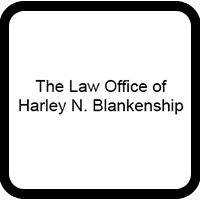Irvington Felony Lawyer, Kentucky
Not enough matches for Irvington Felony lawyer.
Below are all Irvington Criminal lawyers.
Krsna I Tibbs
✓ VERIFIED *Status is reviewed annually. For latest information visit hereFamily Law, Criminal, Medical Malpractice, Divorce, Personal Injury
Originally from Atlanta, Georgia, Mr. Tibbs considers himself a Louisvillian, having lived here for two decades and counting. He first came to town to... (more)
Harley N. Blankenship
✓ VERIFIED *Status is reviewed annually. For latest information visit hereCriminal, Estate, Real Estate
Harley Blankenship is a practicing lawyer in Louisville, KY after being admitted to the Kentucky Bar in 1970. He received his Juris Doctor in 1970 fro... (more)
Theodore W. Walton
Bad Faith, Corporate, Consumer Protection, Criminal
Status: In Good Standing *Status is reviewed annually. For latest information visit here
J. Vincent Aprile
Criminal, Employment, Litigation
Status: In Good Standing *Status is reviewed annually. For latest information visit here
Charles Wesley Durham
Criminal, Estate Planning, Family Law, Litigation
Status: In Good Standing *Status is reviewed annually. For latest information visit here Licensed: 39 Years
Douglas Edward Miller
Accident & Injury, Criminal, Family Law, DUI-DWI
Status: In Good Standing *Status is reviewed annually. For latest information visit here Licensed: 42 Years
Timothy Michae Harner
Civil Rights, Criminal, State Government, State Government
Status: In Good Standing *Status is reviewed annually. For latest information visit here
Benjamin Jason Early
Criminal, Family Law
Status: In Good Standing *Status is reviewed annually. For latest information visit here
Justin Freeland
Criminal, State Government, Military
Status: In Good Standing *Status is reviewed annually. For latest information visit here Licensed: 15 Years
Paul Musselwhite
Bankruptcy, DUI-DWI, Personal Injury, Child Custody
Status: In Good Standing *Status is reviewed annually. For latest information visit here


